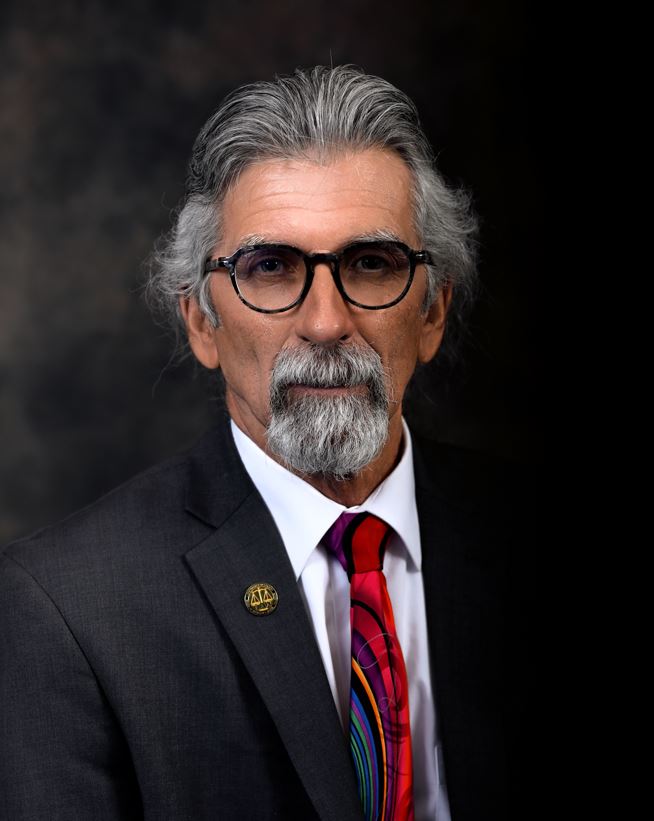Outgoing President’s Message
Laird B. Stone

These are my last comments as a Commissioner and current Bar President. They will not be as eloquent as President Washington’s or General MacArthur’s farewell addresses to Congress but may at least cause my fellow lawyers to ponder on my musings.
How many times in our life have we heard the phrase, “We are at a critical turning point in our national history?” Almost daily!
If you read the history of each of the 46 Presidencies, you will find that almost everything that we are saying and hearing about has occurred, in some fashion, in the past. The difference is the constant 24/7 cycle for “news.” (I put news in quotes, as a lot of what we get is not news but unsupportable gossip.)
However, just because we are repeating events does not mean that the response has always been the same. It repeats because of the nature of being human. The effect it has on us is up to each of us, individually, and then collectively as groups. Each time a response has been made, there are slight differences, which have improved the conditions in which we find ourselves. This is defined as progress.
We can all create a timeline of our families and list all of the things we have seen and the changes that have occurred in society during those lifetimes.[i] What we don’t do is take the time to remember and reflect on those changes and the responsibility we have of ensuring that the knowledge and experience is passed on and that we move forward in a positive, non-destructive manner.
Another way to define this: “Today, as the world shifts to an increasingly interconnected knowledge economy, the intersecting forces of technological innovation, globalization, and demographic change create vast new challenges, opportunities, and uncertainties. In this great upheaval, the nation’s most enduring social institutions are at a crossroads.”[ii]
While this quote is from authors discussing the changes in educational institutions, it is applicable to the legal profession, as well.
As a profession we should address:
How do we deliver legal education? How do we measure competency? How do we ensure continued competency? How do we govern, i.e. are we an individual bar or a national bar with regional governance? How do we provide legal assistance? How do we care for others in our profession? How do we diversify our membership? How do we address societal issues, both political and non-political?
These are all questions we, as lawyers, need to not only ask ourselves but also ask the groups to which we belong, both legal and non-legal. It is an obligation of our profession to confront these issues in an open dialogue and provide guidance in finding those solutions.
So, speak up for what you believe is right. Recognizing that the rights and privileges that we might obtain overlap with the rights and privileges of others, which is too often the forgotten piece when we ponder the “how” questions.
Moving back to the first “how,” are we at a turning point in our history? Yes, but we are also at a turning point in our profession, as defined by the questions raised earlier. In pondering those questions consider that the beauty of our profession is the power to do something for someone. This is the Rule of Law in its simplest form. This “doing” is not just for others outside our profession but within the confines of our profession. This reality of “doing” is the method by which the answers to the “how” questions can be reached. It must be remembered that those answers will change over time.
Do I have the answer for any of them, which I should put forth? No, but I will be part of the discussion and do the best that I can to resolve those issues, to help our profession move forward as history evolves and addresses the societal questions, political and non-political. I am no learned scholar as some of my colleagues are. As Popeye said, “I am what I am,” a lawyer. Paraphrasing Lincoln, “I do the best I can with what I have and will let others decide whether I made a difference.” (I can’t wait for the comments about quoting Popeye and Lincoln in the same paragraph.)
As I end my term as a Bar Commissioner in July, I want to thank the lawyers in the Third and Fifth Districts, as well as lawyers from around the State who have supported, in numerous ways, the protection of the Rule of Law and our profession so that we can truly do something for someone. It has been my honor and privilege to have served the Idaho State Bar and to have represented all of you.
Thank you.

After 44 years of practice, when not found at the office, Laird B. Stone, will be seen with his wife, Vickie, playing with their five-year-old granddaughter, or on the golf course.
[i]. Trival Note – (The final beneficiary of a civil war pension, Irene Triplett, died in May of 2020. Triplett had been born in 1930 to an 83 year old Union veteran.) (A Man of Iron, the Turbulent Life and Improbable Presidency of Grover Cleveland by Troy Senik (9/2022).)
[ii]. (The Great Upheaval, Higher Education Past, Present, and Uncertain Future. Arthur Levine, Scott VanPelt – John Hopkins University Press (2021).)

